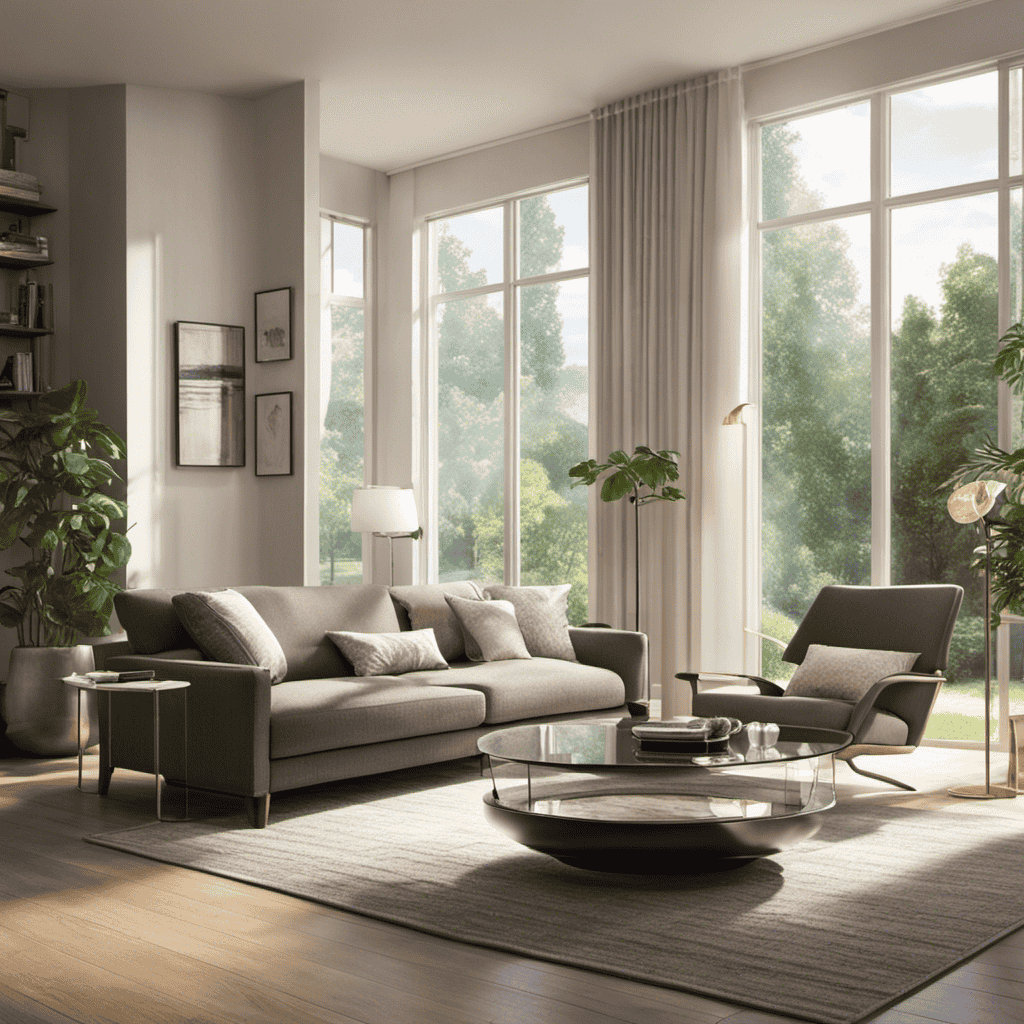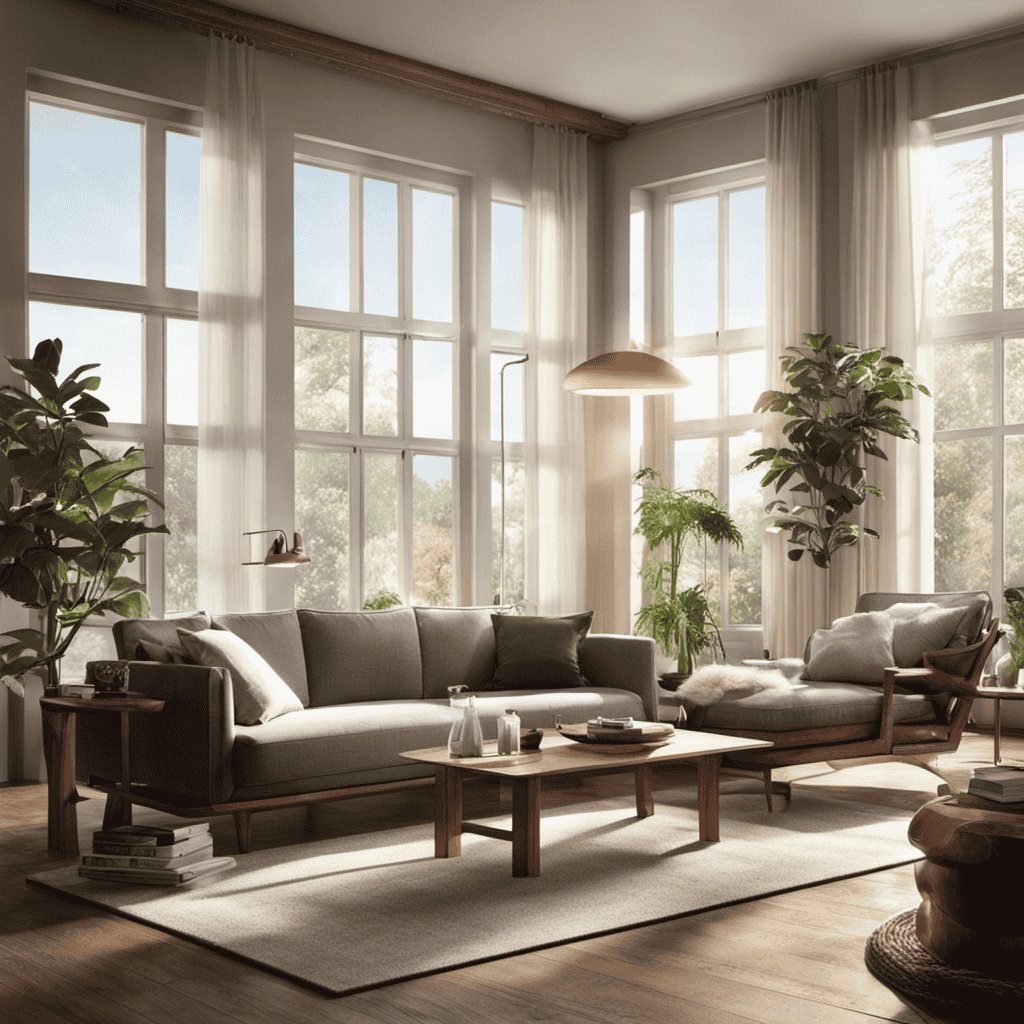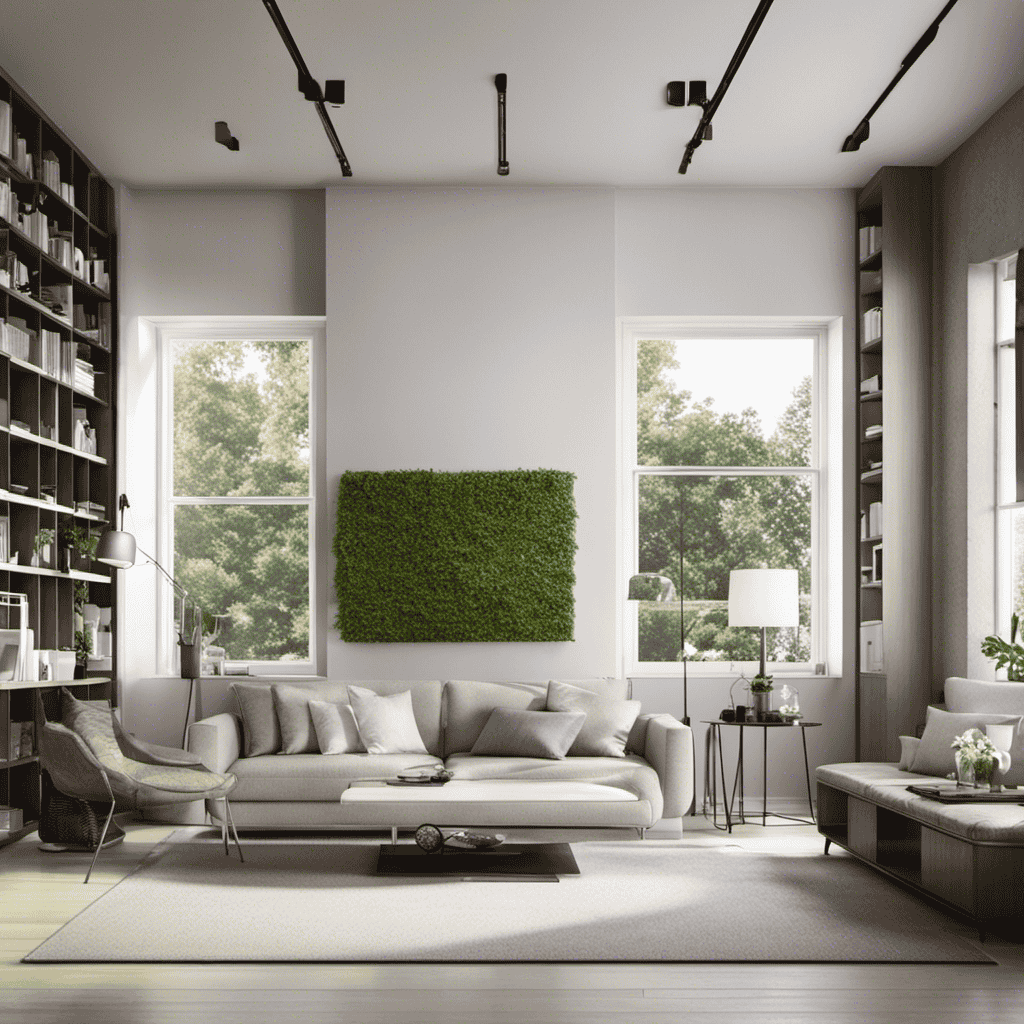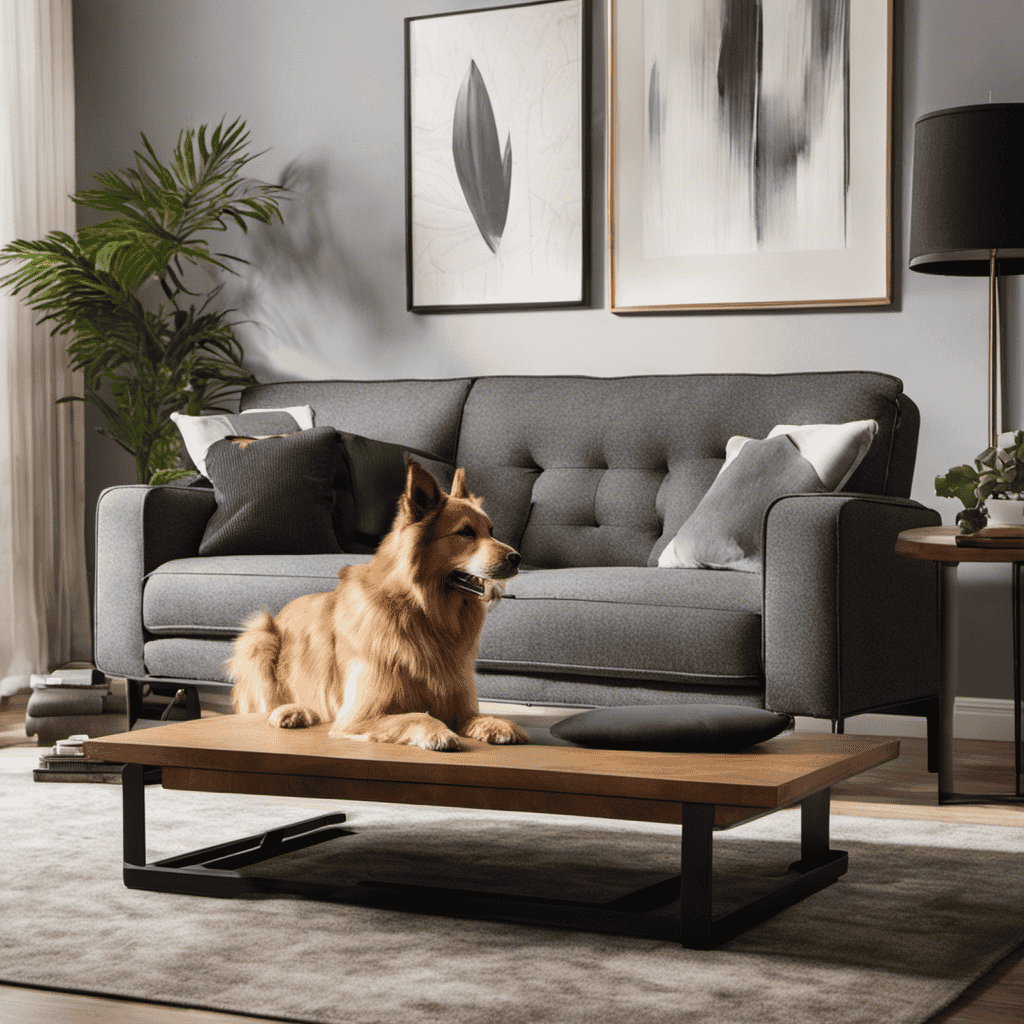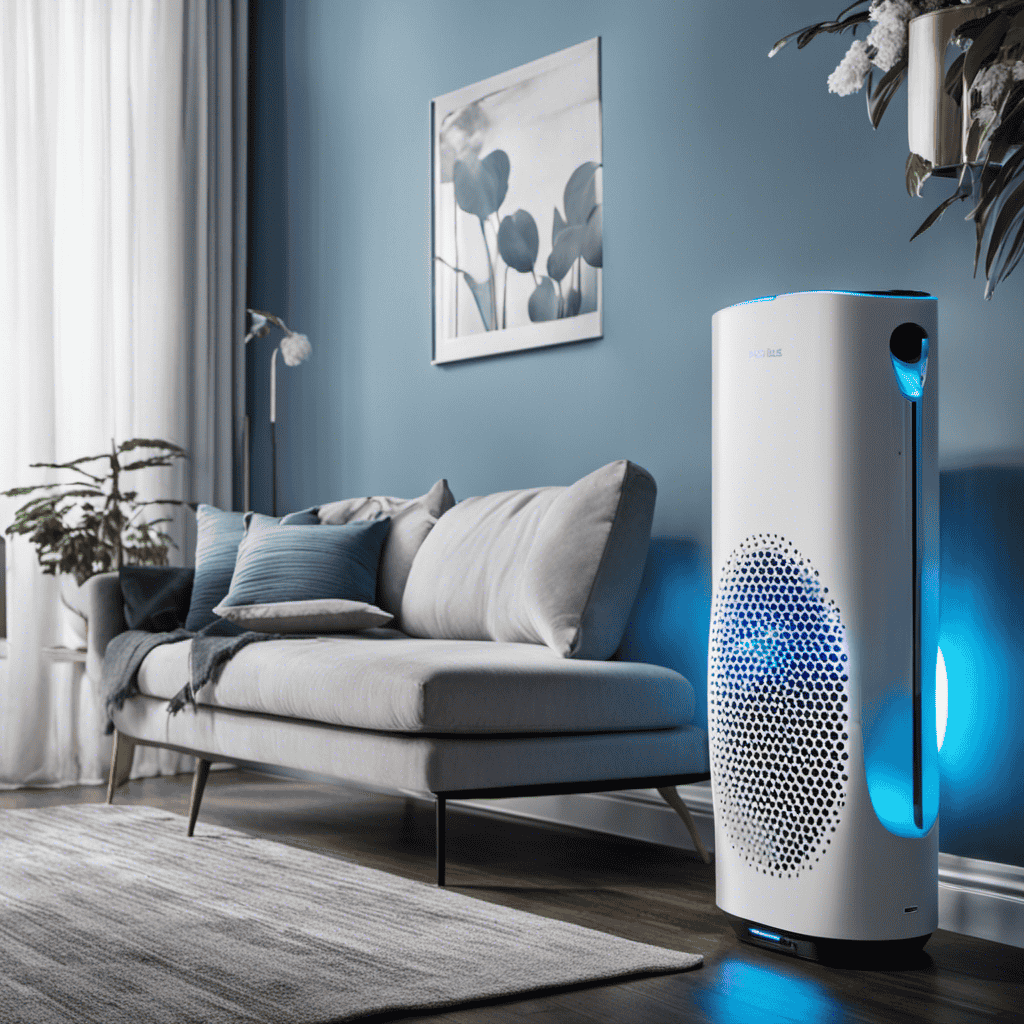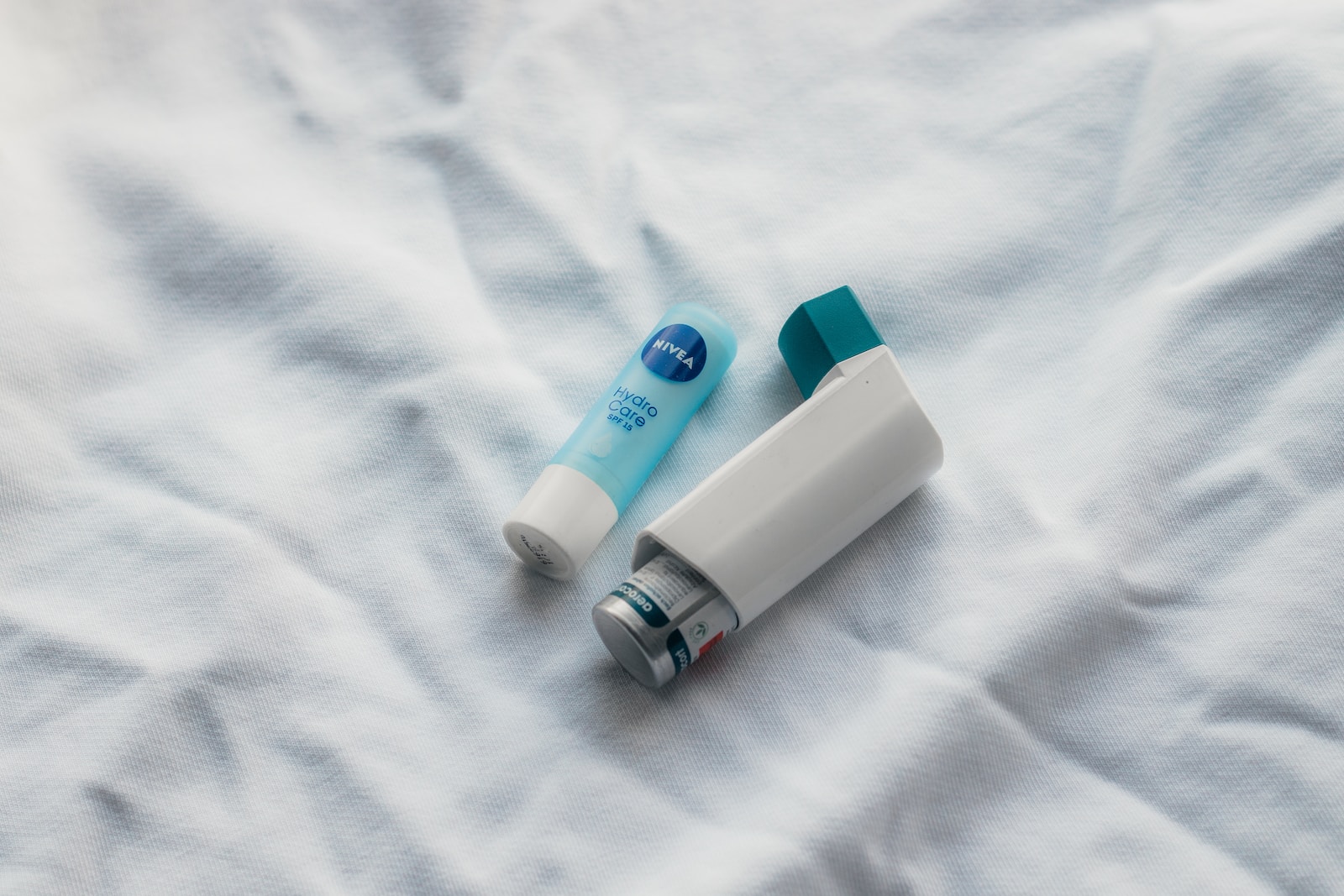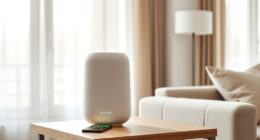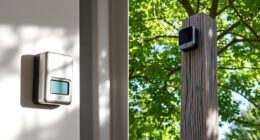As I sit in my home, surrounded by unseen particles in the air, I can’t help but ponder: how long will it take for my air purifier to do its job? This is a common question that comes to mind, particularly during times when having clean air is crucial.
In this article, we will delve into the science behind air purifiers, explore the factors that affect their efficiency, and uncover the secrets of how long it takes for these devices to truly clean the air we breathe.
So, let’s dive in and uncover the truth together.
Key Takeaways
- The time it takes for an air purifier to clean the air depends on factors such as room size and pollution level.
- It may take a few minutes to a few hours to notice a noticeable improvement in air quality.
- The noise level and energy consumption of air purifiers can vary among different models.
- Modern air purifiers are designed to be energy-efficient.
The Science Behind Air Purifiers
The science behind air purifiers is fascinating and can help us understand how long it takes for them to start working.
Air purifiers are designed to remove pollutants and improve indoor air quality. The effectiveness of an air purifier depends on various factors, such as its technology and the size of the room it is being used in.
Different air purifier technologies, such as HEPA filters, activated carbon filters, and UV-C light, target different types of pollutants. HEPA filters are highly effective in removing particles like dust, pollen, and pet dander, while activated carbon filters are great for eliminating odors and harmful gases. UV-C light can kill bacteria and viruses.
The time it takes for an air purifier to start working depends on the specific technology being used and the level of pollutants present in the air.
Factors Affecting Air Purifier Efficiency
To improve the efficiency of your air purifier, there are a few factors to consider. First, think about the size of the room where you’ll be using the purifier. A small purifier may not be effective in a large room, while a large purifier might be too much for a small room. So, choose a purifier that is appropriate for the size of your space.
Another important factor is the air quality in your area. If you live in a place with high pollution levels or if you have pets, it’s recommended to get a purifier with a higher CADR (Clean Air Delivery Rate). This will ensure that the purifier can effectively clean the air in your home.
Proper maintenance is also crucial for the efficiency of your air purifier. Make sure to regularly clean or replace the filters and keep an eye on the overall functioning of the purifier. By doing so, you can maximize its lifespan and ensure that it works efficiently and effectively.
Using an air purifier has several benefits for your health. It can help reduce allergies, asthma symptoms, and airborne pollutants, all of which contribute to improving the indoor air quality in your home. So, investing in a good air purifier and taking these factors into consideration can greatly enhance its efficiency and the benefits it provides.
How Long Does It Take for an Air Purifier to Clean the Air
In discussing the topic of purifier air cleaning time and the efficiency of air purifiers, it is important to consider how long it takes for an air purifier to effectively clean the air in a given space.
This can vary depending on factors such as the size of the room, the level of air pollution, and the specific model and capabilities of the air purifier.
Understanding the time it takes for an air purifier to clean the air is crucial in determining its effectiveness in providing clean and healthy indoor air.
Purifier Air Cleaning Time
Once you turn on the air purifier, it’ll take some time for it to start cleaning the air effectively. The duration can vary based on several factors, such as the size of the room, the level of air pollution, and the type and efficiency of the air purifier.
Generally, it may take anywhere from a few minutes to a few hours for the air purifier to noticeably improve the air quality in a room. During this time, the purifier will be actively filtering and removing pollutants from the air, reducing their concentration.
It is important to note that the noise level and energy consumption of the air purifier can also vary depending on the model. Some purifiers are designed to operate quietly, while others may produce more noticeable noise. Similarly, the energy consumption can vary, but most modern air purifiers are designed to be energy-efficient.
Efficiency of Air Purifiers
The efficiency of air purifiers can vary based on factors such as the size of the room and the level of air pollution. When it comes to removing allergens, air purifiers can be quite effective. They work by filtering the air and capturing particles such as pollen, pet dander, and dust mites.
Additionally, air purifiers play a significant role in reducing indoor pollutants. They can help remove volatile organic compounds (VOCs), smoke, and other harmful substances from the air. However, it is important to note that the effectiveness of air purifiers in removing allergens and reducing indoor pollutants may vary depending on the specific model and its features.
Understanding air purifier filters and their impact is crucial in ensuring optimal performance and achieving clean and healthy indoor air quality.
Understanding Air Purifier Filters and Their Impact
You can easily understand the impact of air purifier filters on the air quality in your home. Air purifier filters play a crucial role in removing pollutants and improving indoor air quality. There are different types of filters available, each with its own unique features and benefits. To help you make an informed decision, here is a comparison of three common types of air purifier filters:
| Filter Type | Description | Effectiveness |
|---|---|---|
| HEPA Filters | High Efficiency Particulate Air filters | Highly effective |
| Carbon Filters | Activated carbon filters | Excellent for odors |
| Electrostatic Filters | Electrically charged filters | Good for larger particles |
Understanding these air purification technologies can help you choose the right air purifier for your needs. Whether you need to remove allergens, eliminate odors, or address specific air quality concerns, selecting the appropriate filter is essential for optimal performance.
Tips for Maximizing the Effectiveness of Your Air Purifier
When it comes to maximizing the effectiveness of your air purifier, there are two key points to consider: optimal placement and regular maintenance.
Optimal placement is crucial to ensure that the air purifier can effectively capture and filter the air in your space.
Regular maintenance, on the other hand, is essential for maintaining the efficiency of the air purifier over time.
Optimal Placement for Effectiveness
For maximum effectiveness, make sure to place the air purifier in a central location within the room. This allows the purifier to circulate and clean the air more efficiently.
Optimal placement of an air purifier offers several benefits. Firstly, it ensures that the purified air is evenly distributed throughout the room, providing cleaner and fresher air in all corners.
Secondly, it helps in reducing the noise levels produced by the purifier. Placing it in a central location helps to minimize the distance between the purifier and the occupants, resulting in less audible noise.
Lastly, positioning the purifier away from obstacles such as furniture or walls allows for better airflow and unrestricted operation.
Regular Maintenance for Efficiency
Regular maintenance is essential to ensure that the air purifier continues to work efficiently. It is important to follow a regular maintenance checklist to keep the purifier running smoothly.
The first step is to clean or replace the filters regularly. Dirty filters can restrict airflow and reduce the purifier’s effectiveness.
Next, it is crucial to clean the exterior and interior of the purifier to remove any dust or debris that may have accumulated.
Additionally, checking the fan and motor for any signs of wear or damage is important to prevent potential problems.
Lastly, monitoring the air quality and adjusting the settings accordingly will help optimize the purifier’s performance.
Monitoring Air Quality: When to Replace or Upgrade Your Air Purifier
If you’re wondering when to replace or upgrade your air purifier, it’s important to monitor the air quality regularly. This will help you determine if your current air purifier is still effective in cleaning the air in your environment.
There are several signs that can indicate whether it’s time for a replacement or upgrade:
-
Decreased airflow: If you notice a decrease in the airflow coming from your air purifier, it may be a sign that the filters are clogged or the fan is not functioning properly.
-
Increased allergies or asthma symptoms: If you or your family members are experiencing more allergy or asthma symptoms than usual, it could mean that the air purifier is no longer effectively removing allergens or irritants from the air.
-
Unpleasant odors: A strong or persistent odor in your home could indicate that the air purifier is not effectively eliminating odors or volatile organic compounds (VOCs).
-
Excessive dust or dirt buildup: If you consistently find a significant amount of dust or dirt on your furniture or surfaces, it may be a sign that the air purifier is not effectively capturing particles in the air.
Frequently Asked Questions
Can an Air Purifier Completely Eliminate All Pollutants From the Air?
An air purifier can effectively reduce pollutants in the air, but it may not completely eliminate them. While it can capture particles like dust and pollen, it may not be as effective against gases and odors.
How Often Should I Run My Air Purifier to Maintain Clean Air?
I run my air purifier regularly to maintain clean air. It’s important to choose the right one for your home and follow tips for improving indoor air quality. But how long until it works? That’s the question.
Can an Air Purifier Remove Odors From the Air?
Yes, air purifiers can remove pet odors and cigarette smoke from the air. They use filters to capture and eliminate these particles, improving the overall air quality in your home.
Is It Necessary to Have Multiple Air Purifiers in Different Rooms of the House?
Having multiple air purifiers in different rooms of the house is not necessary, but it can greatly enhance the benefits of air purifiers. They help to remove pollutants, allergens, and odors, creating a cleaner and fresher indoor environment.
How Much Electricity Does an Air Purifier Consume?
When considering the energy efficiency and environmental impact of an air purifier, it’s important to assess its power consumption. Understanding how much electricity it consumes will help determine its overall efficiency and environmental footprint.
Conclusion
In conclusion, the time it takes for an air purifier to work is astonishingly fast! With its advanced technology and powerful filters, this incredible device can transform polluted air into a pristine paradise in no time.
Its efficiency is unparalleled, tackling even the toughest airborne particles with ease. By understanding the science behind air purifiers and their filters, you can maximize their effectiveness and enjoy a breath of fresh air in your home.
So don’t wait any longer, get an air purifier today and experience the miraculous transformation for yourself!
